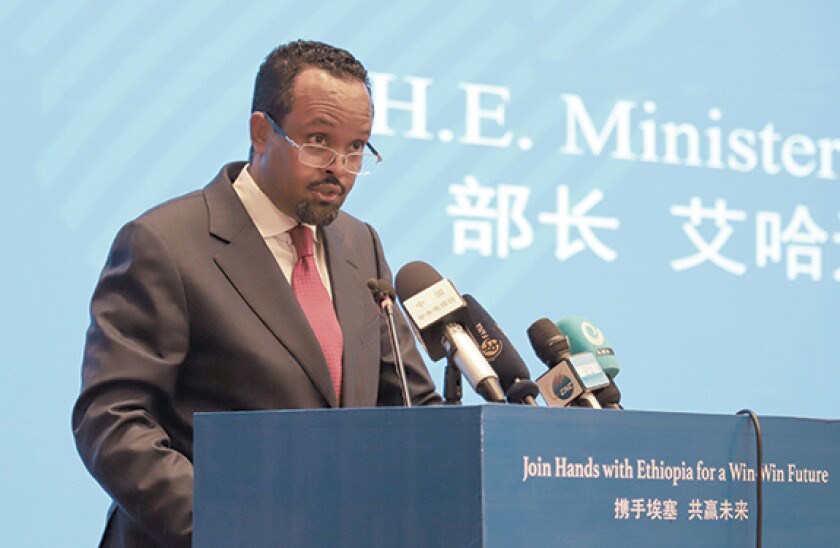African countries need to be given fairer treatment by the dominant Western credit rating agencies, said three finance ministers from the region, and the continent should also strengthen its own rating agencies.
The three major rating agencies — Moody’s, S&P and Fitch — show a bias against African countries and are too quick to downgrade and too slow to upgrade, said ministers at an event on African debt and credit ratings at the Brookings Institute in Washington on Thursday.
Only two African countries, Mauritius and Botswana, enjoy investment grade ratings. In 2023 half of the sovereign rating downgrades were in Africa and of the 43 upgrades, just four were from Africa, according to Ahunna Eziakonwa, assistant secretary-general and director of the United Nations Development Programme’s Africa sector.
“There is a rush to judgment and an explicit and implicit bias,” said Ahmed Shide, minister of finance for Ethiopia, which is the only African country now undergoing a debt restructuring, after a default at the end of 2023.
African sovereign ratings are the first to bear the brunt of downgrades when there are shocks in the global economy, ministers said.
“Rating agencies are not kind to our economies,” said Retšelisitsoe Matlanyane, minister of finance and development planning of Lesotho. “We have asked investors, what are you afraid of? We have done everything. And what they are afraid of is what the rating agencies are saying about our economies without actually understanding the fundamentals, the anatomies and the workings of our economies.”
But bias, whether implicit or explicit, is not the only problem. “The market is too concentrated,” said Matlanyane. “We need more entrants into the market to level the playing field.”
Incomplete coverage
The discontent with ratings is not limited to sovereigns. The major agencies have very little coverage of state-owned and private sector companies in Africa, limiting their ability to access capital.
This does not just apply to overseas investors. “Even in Africa our pension funds, sovereign funds and central banks use the rating agencies to make investment decisions,” said Mutesi Rusagara, minister of state for public investment and resource mobilisation in Rwanda. “We’re locking out African capital, not just foreign capital.”
The upshot is that perceived unfair ratings mean African countries are paying more to borrow money than they should be, especially compared with non-African countries with the same ratings.
“African countries face challenges getting affordable development financing due to ratings,” said Shide. “These ratings do not always reflect economic strength and it leads to higher borrowing costs. The atmosphere of vicious debt traps is long-lasting.”
There is work to be done on both sides, Shide conceded. African countries need to improve their data sharing, for example. But rating agencies also need to be more transparent about their methodologies and the metrics they use to assess risk, he added.
One solution would be the development of Africa’s existing rating agencies, such as Nigeria’s Agusto & Co, Sovereign Africa Ratings and Moody’s-owned GCR Ratings in South Africa and Bloomfield Investment in Côte d’Ivoire.
There is also a case for forming a new one. “What we want to see change is having an African rating agency,” said Rusagara. “Whether we are creating new agencies or supporting existing ones, the endgame is strong coverage for Africa and coverage that is more reflective of the situation on the ground.”
